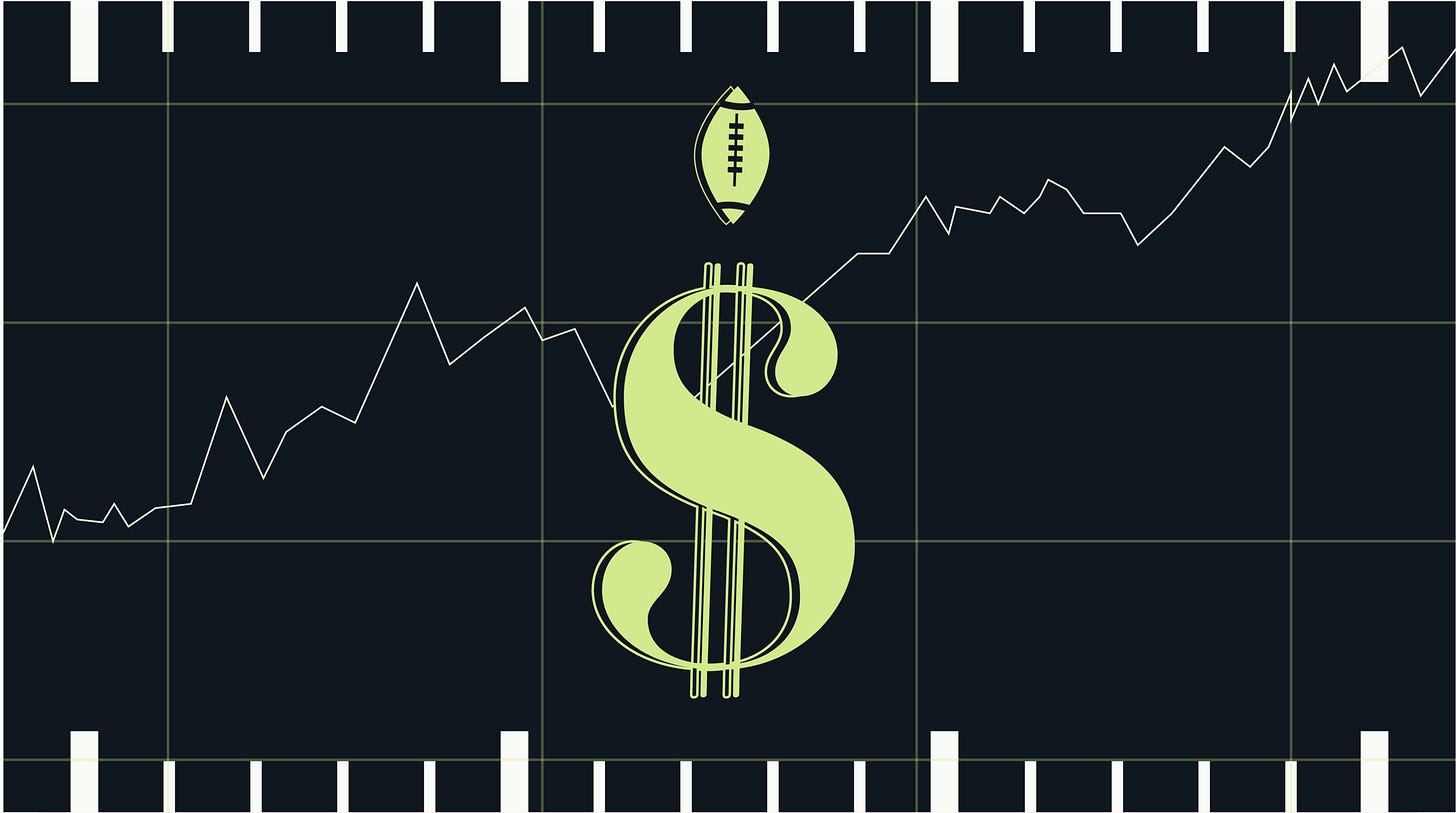Sports gambling and insider trading, I see no difference
Matthew Acosta wrote this article for Cal Poly Pomona’s The Poly Post. It is available for republication or reference.
The NFL shook up the sports world with its March 7, announcement that they are suspending Atlanta Falcons star wide receiver Calvin Ridley for sports gambling. This sparked discussion on how the league is viewed by fans and sponsors, and the extent to which gambling damages the league’s integrity.
However, roughly two months before these allegations came to light, a current NFL offensive lineman for the Detroit Lions, Tyrell Crosby, posed a question to Twitter that quickly went viral.
“If as an NFL player we aren’t allowed to bet on games… why are government officials allowed to buy stocks/stock options?” Crosby tweeted.
When I first read this, I thought it made perfect sense. If athletes cannot bet on or against themselves, why should lawmakers with insider information be allowed to buy into stocks that they may have influence over? I think we should hold our lawmakers to a higher standard, because the country’s integrity is the least of what we deserve as citizens.
In 2012, the Obama administration instituted the Stop Trading on Congressional Knowledge Act. This legislation requires those in political power to disclose their stock trading within 45 days of a transaction.
Politicians violate the act by failing to report their stock transactions within the 45-day limit and are subject to a fine of $200. This type of “fine” is a joke as many CPP students pay more for a parking pass per semester.
This is meant to deter insider trading by forcing all politicians’trades be open to the public, but it has not. According to Business Insider, as of March 19, 58 members of Congress have violated the act, and this number does not look to be slowing down due to the leniency of the penalty for violation.
This past year, three Californian politicians were listed on the biggest traders list in 2021, according to MarketWatch. Representative Ro Khanna led California with $52,697,000 traded on the stock market and was only second to Texas Representative Michael McCaul.
Many politicians that violated the act had missed the deadline by at least a month with some reaching up to 17 months behind in reporting their stock trades, proving the ineffectiveness of the legislation.
I don’t believe we completely know just how much our politicians do trade in the stock market, and this does bring up the fact that their decisions in politics could be swayed by their personal stake in stock trading.
Regardless, the average working-class American is more than likely not as invested in the stock market, thus distilling Wall Street a fancy casino where the rich and those who were voted into political power can make unregulated amounts of money.
Jeffrey Schieberl and Marshall Nickles, two professors at Pepperdine University, conducted a study on how insider trading has played a role in voters trust in politicians over the years.
“We believe that the deterioration of trust and confidence in Congress has grown to some extent from the inept self-investigation and regulation by the Congressional Ethics Committee as well as bipartisan gridlock,” they concluded.
The biggest issue that the NFL finds with gambling associated with its brand by employees, coaches and players is the potential of constituents losing trust in the games and deteriorating the integrity of the league. I would think that the country would want to retain that same level of integrity and trust in its people like a private organization would.
Athletes like Calvin Ridley and Pete Rose have been heavily scrutinized by sports analysts and fans for ruining the integrity of the game through gambling, yet our own politicians are not held to these same standards.
Many politicians who have violated the Stop Trading on Congressional Knowledge Act have received attention from the social media platform TikTok. Users have begun tracking the large trades that had been made by politicians before they are able to report them, attempting to keep them further in check.
Though this type of watchdog approach on politicians is helpful, it should not be necessary. The deterrents that have been put into place to halt insider trading have not worked. While professional athletes have faced harsh penalties, those with a bigger responsibility essentially do the same yet walk away with their pockets full.


